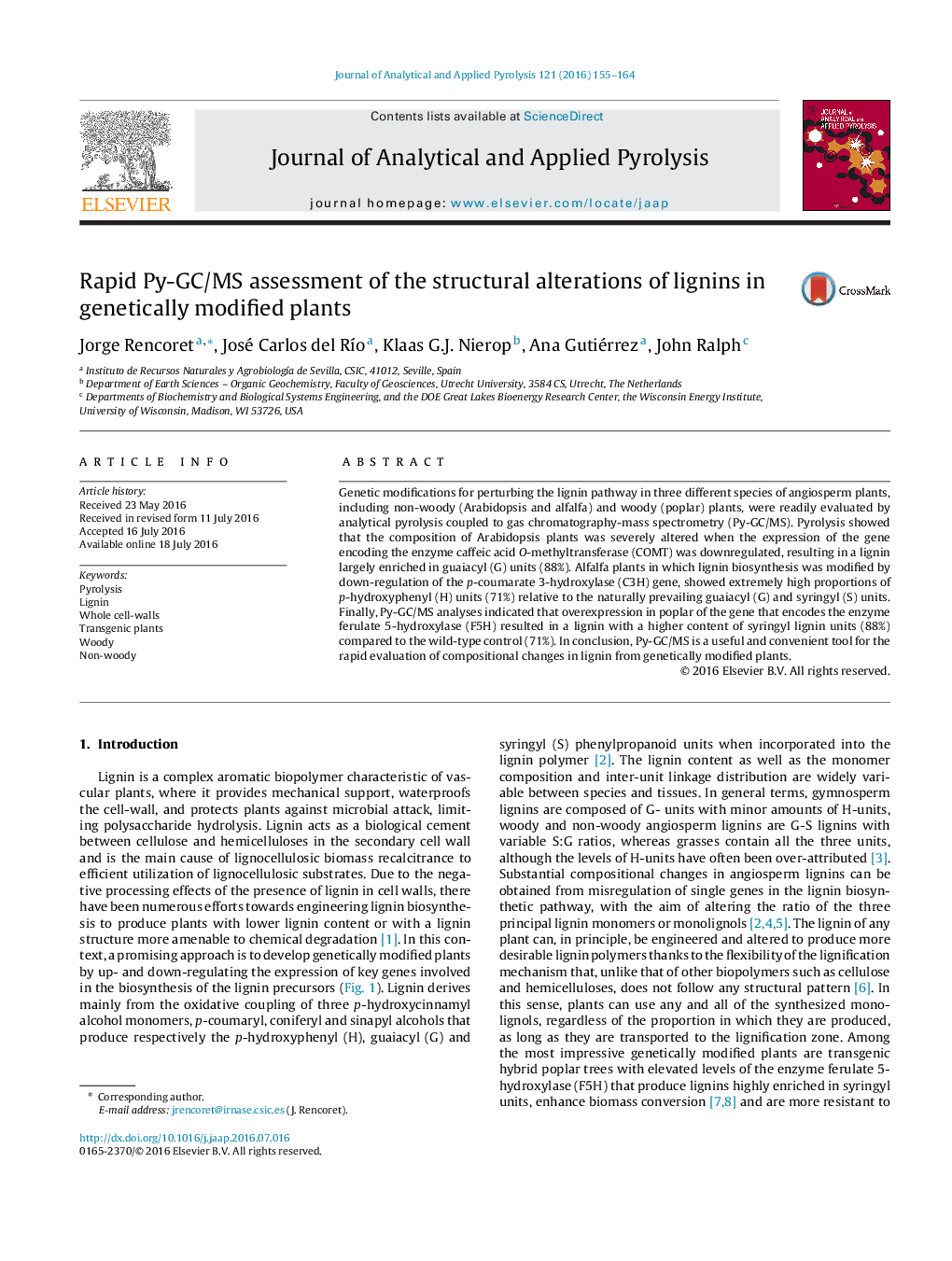| Article ID | Journal | Published Year | Pages | File Type |
|---|---|---|---|---|
| 5134718 | Journal of Analytical and Applied Pyrolysis | 2016 | 10 Pages |
•Py-GC/MS is useful for evaluation of lignin from genetically modified plants.•Py-GC/MS allows in situ analysis of transgenic plants with low lignin contents.•The pyrolysis system is critical to detect 5-OH-guaiacyl units from benzodioxanes.
Genetic modifications for perturbing the lignin pathway in three different species of angiosperm plants, including non-woody (Arabidopsis and alfalfa) and woody (poplar) plants, were readily evaluated by analytical pyrolysis coupled to gas chromatography-mass spectrometry (Py-GC/MS). Pyrolysis showed that the composition of Arabidopsis plants was severely altered when the expression of the gene encoding the enzyme caffeic acid O-methyltransferase (COMT) was downregulated, resulting in a lignin largely enriched in guaiacyl (G) units (88%). Alfalfa plants in which lignin biosynthesis was modified by down-regulation of the p-coumarate 3-hydroxylase (C3H) gene, showed extremely high proportions of p-hydroxyphenyl (H) units (71%) relative to the naturally prevailing guaiacyl (G) and syringyl (S) units. Finally, Py-GC/MS analyses indicated that overexpression in poplar of the gene that encodes the enzyme ferulate 5-hydroxylase (F5H) resulted in a lignin with a higher content of syringyl lignin units (88%) compared to the wild-type control (71%). In conclusion, Py-GC/MS is a useful and convenient tool for the rapid evaluation of compositional changes in lignin from genetically modified plants.
